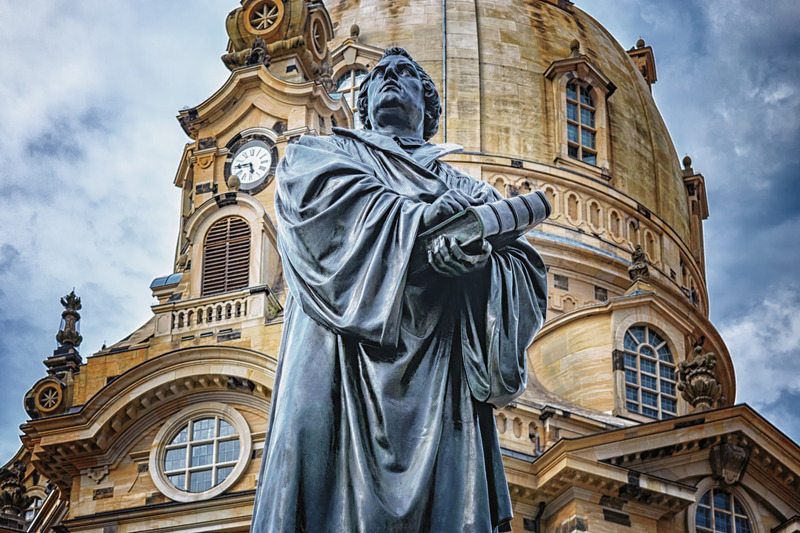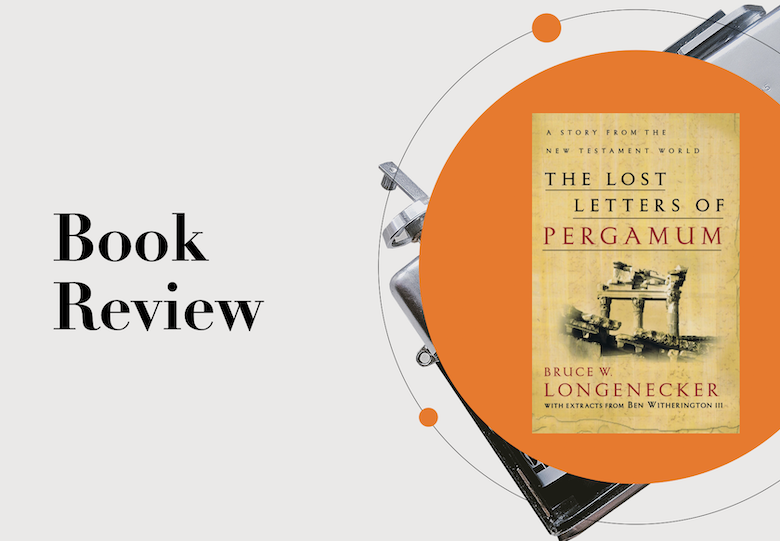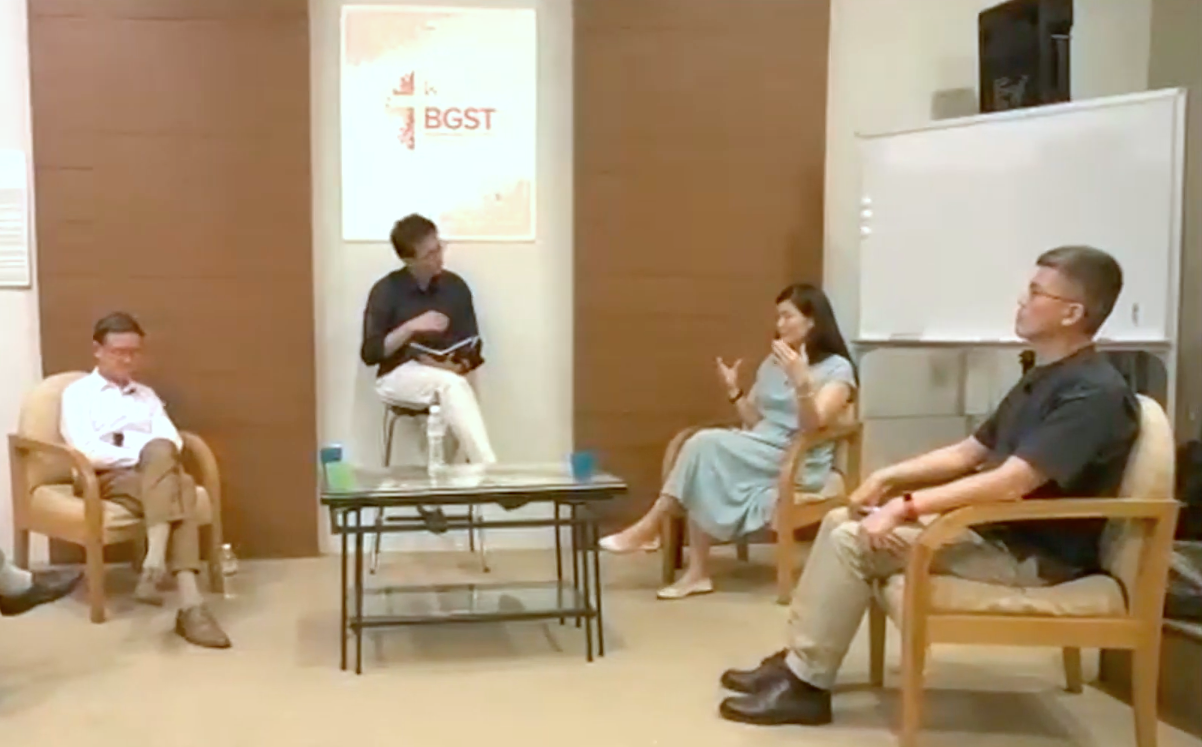The Busy and Hurried Soul
I have often been asked why I titled my book Spiritual Formation on the Run. It was suggested that it should include ‘…run away from the busy life’ or ‘…run to silence and solitude’. It puzzled me for a long time until it dawned on me that to many people, spiritual formation or spiritual growth is incompatible with being on the run or movement. To many, spiritual formation will only occur when we are still and silent, like on a retreat in the mountains in the middle of nowhere. I do not know where this idea comes from but it seems to me that too many of us are exposed to Chinese kungfu movies, where the grandmaster or sifu only attains enlightenment (usually implying a higher level of martial skills) by meditation while sealed in a cave on top of some misty mountain. I often wonder how he (usually it is a he) handled his toilet needs. I guess this is reinforced by the familiar Christian reading of the well known incident in Luke where Martha was busy being hospitable to her guests, while her quiet contemplative sister Mary was sitting and listening to Jesus.
Luke 10:38–42 (NASB95)
38 Now as they were traveling along, He entered a village; and a woman named Martha welcomed Him into her home. 39 She had a sister called Mary, who was seated at the Lord’s feet, listening to His word. 40 But Martha was distracted with all her preparations; and she came up to Him and said, “Lord, do You not care that my sister has left me to do all the serving alone? Then tell her to help me.” 41 But the Lord answered and said to her, “Martha, Martha, you are worried and bothered about so many things; 42 but only one thing is necessary, for Mary has chosen the good part, which shall not be taken away from her.”
Interestingly, this account is only found in Luke and comes immediately after the Parable of the Good Samaritan (Luke 10: 25-37). This parable highlights doing good to all people irrespective of caste, religious affliction and station in life. Doing good, of course, involves activity. But in the usual reading of vv. 38-42 Martha is associated with the active life while Mary is linked with the contemplative one. Jesus seems to praise Mary’s choice as the correct one. If this is the only lesson from the passage, then Martha should have come and sat at Jesus’ feet and everyone would go hungry without supper!
The houses in New Testament times were rather small, so even when preparing food, both the ladies would be able to hear Jesus. The passage seems to imply that initially both Mary and Martha were involved in the food preparation. Then suddenly Mary left the preparation to sit at Jesus’ feet to focus fully on what Jesus was saying. Martha’s ire was that her sister was not helping her in the food preparation. Martha was busy and in a hurry. Maybe she wanted to produce an exceptional meal for her special guest. In her hurriedness, she was distracted and was not listening to Jesus. Jesus was speaking to everyone in the house, not just Mary. Jesus’ rebuke to Martha may have been because she was not listening to him. This was because she was so distracted by her busyness. Martha, Jesus implied, could have prepared the food and listened to him at the same time, as women are wonderful at multi-tasking. I am sure Jesus wanted to eat too. Jesus did not say, “Martha, stop what you are doing, sit down and listen to me!”
We all live very busy lives. From the moment we are rudely awakened by our alarm clocks to the time we fall asleep, we have to perform many tasks. Our ‘to-do’ list often runs to two or three pages. If being busy means that we have not chosen ‘the good part’, most of us are in trouble. Not many of us have the opportunity to take time away to be at a retreat, to just sit and listen. There are bills to pay, houses to clean and kids to bring up.
There is a difference between being busy and being hurried. We can be busy without being in a hurry. Busyness is an external condition where we have many tasks to complete. Hurriedness is an inner state where we are distracted because of the external busyness. This inner state of distraction means that our soul is confused, fragmented and disconnected from our mind, heart and spirit. What is more significant is that the hurried or distracted person cannot hear the voice of God. What Jesus was trying to teach Martha (and us) is that it is not wrong for us to be busy (for which one of us is not busy!) but we should not be hurried and distracted. This is because when we are hurried and distracted, we cannot hear him.
This means that Christian spiritual formation and transformation can occur in a busy life. However, the process may be difficult in a busy and hurried life. Dallas Willard notes, “Hurry is the great enemy of spiritual life in our day. You must ruthlessly eliminate hurry from your life.” Is it possible to live a busy but unhurried life? Gregory the Great was the first monk to become a pope. He became Pope Gregory I from 590 to 604 AD. Gregory was a Doctor of the Church and a Latin Father. He contributed a lot to church services and is known as the father of Christian worship. In his busy schedule, Gregory was able to maintain a powerful devotional life. John Calvin mentioned Gregory in his Institutes and praised his contribution to the church.
How do we become unhurried in our busy life? Here are a few suggestions:
1. Do not be a perfectionist
Martha might not have been so distracted if she had not been in such a hurry to prepare a gourmet meal for her visitors. Perhaps a simpler meal would have allowed her to slow down and listen to Jesus as she worked. Our home need not be so clean and tidy that it could be featured in Ideal Home magazine. We do not need to have the complete set of Minions from McDonald Kiddy Meals. Being less of a perfectionist may remove the strain of being in a hurry.
2. Prioritize your to-do list
Not all of the things on our to-do lists need to be completed. The world will not come to an end if we do not complete it. If Christ comes again then we do not need to complete it. Prioritize and do the most essential things first. Be realistic in assigning the amount of time to complete each task. Group similar tasks together. A bit of forward planning can help to eliminate hurry from our schedule.
3. Take ‘minute’ retreats
A ‘minute’ retreat is to take a minute of your time during a busy period, close your eyes and calm your mind, slow your breathing and take deep breaths. Visualize a quiet room within your heart where you can meet with Jesus and say hello. This will break the vicious cycle of stress caused by your business. Stress tends to induce hurry in our inner life. You can close your eyes and do a minute retreat at any time and in any place. Except maybe when you are driving or skydiving.
4. Keep things in perspective
In a particularly busy period, ask yourself: will what you are doing matter in five years’ time? Will it matters in a year’s time? Next month? Often answering this questions bring things into perspective. Having things in perspective helps to eliminate hurry. One of my favorite quotes from Facebook is a paraphrase of the Serenity Prayer: “Lord, give me coffee to change the things I can change and wine to accept the things I cannot, and chocolate while I figure out the difference!” Not taking ourselves too seriously and having a sense of humor helps us to slow down and not hurry.
5. Let go and let God
The need to be in control and a busy life is a guaranteed recipe for a hurried life. Most of us are control freaks. We need to learn to let go and let God take control of our life and of our schedule. Learning to let go means learning to say no. Letting go means focusing on things that have eternal value rather than chasing after things that offer temporary satisfaction. This also helps us to be more patient with events and people.
A hurried life is a distracted life. We can be hurried even when we are not busy. Even during our vacations we are hurried and busy. A distracted life is an unhealthy life. It harms our bodies leading to hypertension, diabetes, obesity and heart problems. Our souls are also being harmed. We are restless. We feel disconnected and lost. There is lacking sense of being anchored or grounded. We become swayed by every event that comes our way. We are irritable and short fused. And we cannot hear the voice of God. Listening and hearing to the voice of God is what Jesus said as ‘only one thing [is] necessary’. So, take a deep breath and stop being in a hurry to finish reading this article!
Dr Alex Tang is a Consultant Paediatrician in a private hospital in Johor Bahru, Malaysia, an Associate Professor of Paediatrics, Monash University, and teaches in seminaries on spiritual formation and bioethics. He is a spiritual director and had facilitated retreats all over the world. Alex is currently involved in developing a spiritual director training program in Indonesia. Dr Alex Tang will be directing Be Still, a BGST Spiritual Retreat, on Sat 27 April, 2019 (9:00am – 12:30pm).
Contributor:
By Dr Alex Tang
Presented by: From the archives of Window to BGST Newsletter Mar 2019
- Categories:
- Read
- Spirituality
- Tags:
- Alex Tang



























































